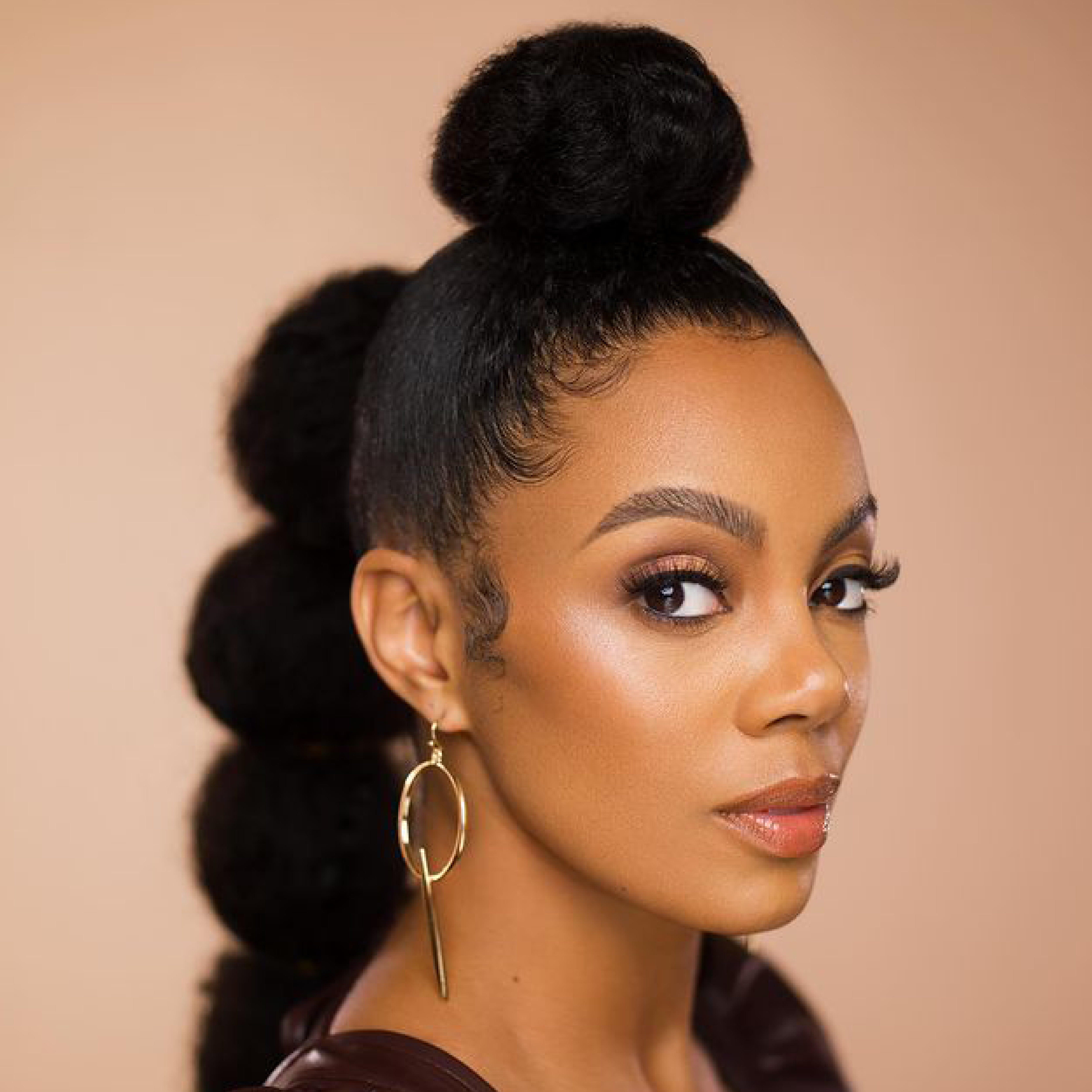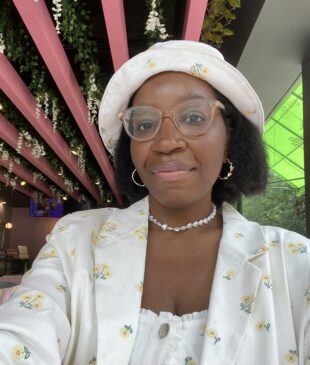If you’ve been following the TikTok drama surrounding Black-owned hair care brand, Mielle Organics, over the last few days, you’ll definitely find this bit of beauty news very interesting. P&G Beauty recently announced that it has signed a deal to acquire the textured hair care brand, for an undisclosed amount.
Operating as an independent subsidiary of P&G Beauty, Mielle Organics will continue to be led by its co-founders, husband-and-wife duo Monique and Melvin Rodriguez, who will maintain their respective roles as chief executive officer and chief operating officer.
Monique shared the news of the partnership today in an Instagram post, writing in part, “It is with great joy and excitement that I announce that Mielle has joined forces with P&G Beauty. I am so excited to continue furthering the mission and vision of Mielle which is to serve the underserved with high-quality innovative products.”
Big Beauty Moves
The multinational beauty giant is already home to a strong portfolio of brands in the beauty space which include Pantene, Head & Shoulders, Olay, and Gillette. With P&G’s backing, Monique expressed hopes that the brand will now be able to increase the availability of its products to an even wider audience. However, she’s also stressed that there are no plans to change its formulas.
“From the moment we stepped into P&G, we saw a diverse team of leaders who share our values and vision for innovation, education, and community empowerment, including several Black leaders who play a key role in the hair care and beauty businesses,” she said. “This partnership gives Mielle an opportunity to serve more textured hair consumers with the great products and formulas that our community loves.
While product innovation and expansion are certainly top of mind for both Mielle and P&G with this partnership, doing some good for the community also remains a clear focus. The two companies have each committed $10 million to Mielle Cares, a non-profit aimed at providing resources and support to advance education and economic opportunities in Black and Brown communities. And, P&G’s investment in Mielle Cares will further expand its work in advancing gender and racial equity through award-winning platforms like My Black is Beautiful and Widen the Screen.
“We founded Mielle Cares to give back to our community who has been so instrumental in the success of Mielle,” said Melvin Rodriguez. “Mielle remains committed to leading with purpose and impact and serving as a beacon in historically underserved communities. Expanding our impact in Black and Brown communities will become an even greater focus in the years ahead.”
Lela Coffery, vice president of P&G’s multicultural hair care business, doubled-down on this commitment in a statement of her own, sharing, “ Monique, Melvin, and their entire team have done an incredible job building Mielle Organics into a leading hair care brand beloved by millions of Black women, and we’re excited to help them continue their success. P&G Beauty’s role will be to support the Mielle Organics team with what they need to achieve their vision—including increased access in Black and Brown communities and investing in research and innovation—while enabling the core tenets of their success to continue as they are today.”
Fans Fear “Sell-Out”
Now, as exciting as it is to see Black founders thriving in the beauty space, you have to remember that this news comes weeks after Mielle found itself at the center of controversy when its Rosemary Mint Scalp and Strengthening Oil went viral on TikTok. ICYMI, in late December, Alix Earle—a white TikTok influencer with more 3.5 million followers—included the oil in a video recounting her top Amazon purchases of 2022, citing “tremendous hair growth” after using the product for about a month. In what many have now called the “Alix Earle Effect”, a slew of (mostly white) creators have since flooded the app with videos of themselves testing out the product, causing the oil to quickly sell out at many retailers. In an effort to protect the hair oil at all costs, some Black creators have even posted negative reviews in an effort to deter white consumers from buying the oil.
When you consider the fact that time and time again Black women have seen first-hand the consequences that arise when white customers start using products marketed toward the Black community, you can understand their immense concern. In fact, as soon as Mielle’s oil began garnering buzz from white creators, many Black women already predicted that an acquisition would soon follow for the brand—and let’s face it: they were right.
Black women have legitimate reasons to side eye white folks “discovering” Mielle hair oil. When brands BW single-handedly kept afloat start chasing white money, they raise prices, change formulas, and erase BW from their image. Remember this disrespectful shit from Shea Moisture? pic.twitter.com/qpJJAlJtQ7
— Uju Anya (@UjuAnya) January 3, 2023
Over the last few years, the Black community has very quickly realized that these large-scale acquisitions of Black-owned hair care brands, which have been dubbed the “gentrification of hair care”, doesn’t always benefit us. When you look at what happened to Black-founded brands such as Shea Moisture and Carol’s Daughter, it’s abundantly clear why Black consumers feel this way. In 2014, L’Oreal USA bought Carol’s Daughter and Unilever later acquired Sundial’s brands, which includes Nubian Heritage, Shea Moisture, Madame C.J. Walker, and Nyakio, in 2017. In the aftermath of the acquisitions, both companies repeatedly faced accusations from their fans of changing their formulas to appeal to the masses, erasing Black women from their marketing, and ramping up their prices. I mean, many Black women won’t soon forget when Shea Moisture released that now infamous “hair hate” ad depicting a lighter-skinned Black woman with a loose curl pattern and two white women (one blonde and one redhead)—talking about embracing “natural” hair. Shea Moisture later apologized for the ad but many Black consumers’ trust in the brand was pretty much lost after that.
With P&G Beauty’s recent acquisition of Mielle, many fans fear that these same troubles could soon follow for the brand. However, with the Rodriguezes still set to remain at the helm of the textured hair care brand, there’s hope that Mielle will be able to keep its promise to Black women with textured hair.
“The community is the foundation of Mielle,” said Monique Rodriguez, in a statement to ESSENCE. “I can assure you that at Mielle we have no plans to change any of our formulas and joining P&G means all of our loyal customers can truly expect the same high-quality products tomorrow that is on shelves today.”
What are your thoughts on the future of Mielle? Share with us @readthetease on Instagram!


